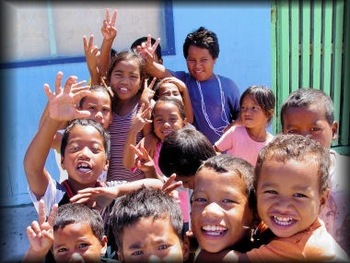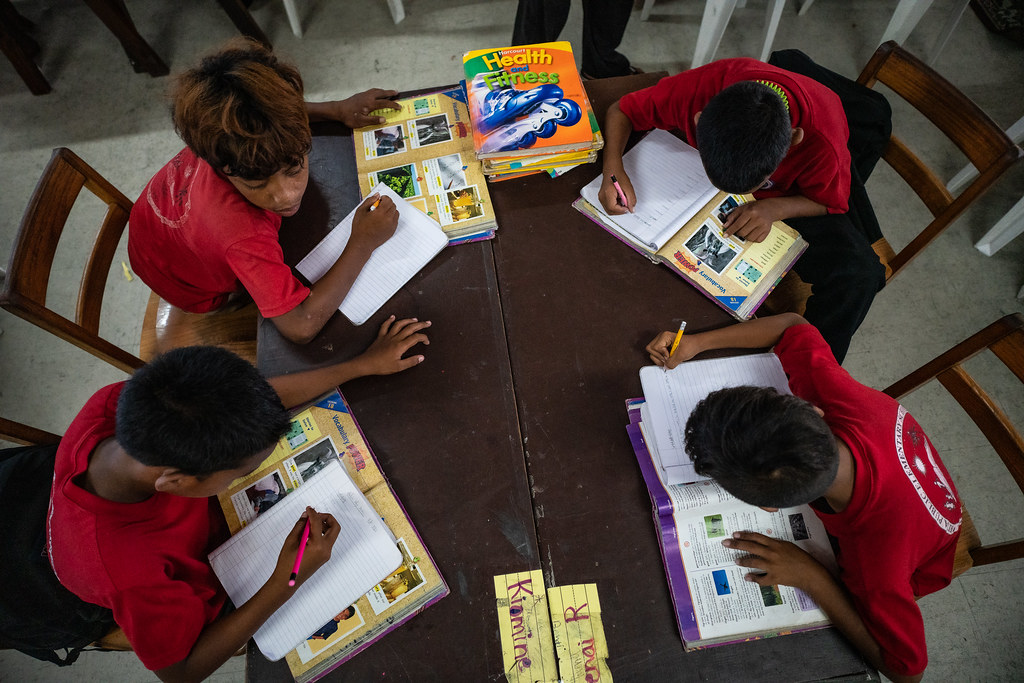
National Training Council – Marshall Islands
İnceleme ekle Takip etGenel Bakış
-
Sektörler Elektrik
-
Gönderilen İşler 0
-
Görüntülendi 26
Şirket tanımı
National Training Council – Marshall Islands

RMI Education and Skills Strengthening Project
The Government of the Republic of Marshall Islands has received funding from the World Bank for the Education and Skills Strengthening Project (ESSP) cost. It means to use part of the profits for speaking with services.
The consulting services (“the Services”) will assist the Project Manager and the RMI National Training Council in implementing the World Bank-funded task successfully.
The task will concentrate on supporting the Project Implementation Unit (PIU) in producing a structure for Recognition of Prior Learning (RPL) for TVET, focused on assisting the College of the Marshall Islands and the RMI National Training Council evaluate and boost the abilities of workers through recognized college certification.
The comprehensive Terms of Reference (TOR) for the assignment are indicated in the connected Terms of Reference (ToR).
The National Training Council now welcomes qualified individuals (“Consultants”) to show their interest in providing the Services. Interested Consultants ought to provide details demonstrating that they have actually the needed credentials and pertinent experience to carry out the Services (connect a Cover Letter of no greater than 4 (4) pages addressing the compulsory experience and credentials requirements curriculum vitae with a description of experience in comparable tasks, comparable conditions, etc). Companies’ staff might express interest through the utilizing firm for the assignment. In such a situation, just the experience and certifications of people shall be thought about in the choice process. The requirements for electing the Consultant are: A.
Mandatory Qualifications and Experience Master’s degree in education, training
, management, or a related field. Minimum of 5-10 years of experience working in TVET System. Curriculum Design and Systems.
Have 2-5 years’ experience creating and
carrying out RPL. structures, policies, and procedures. A sample of previous work will be required as evidence of previous experience. Exceptional interaction, training, and facilitation
abilities. Experience with dealing with diverse stakeholders, consisting of federal government. firms, TVET organizations, companies, and learners in the Pacific. B. Desired Qualifications and Experience Capability to deal sensitively in a multicultural
environment and build efficient team relationships with clients and relevant stakeholders. The attention of interested Consultants (including companies )is drawn to paragraphs 3.14, 3.16 and 3.17 of the World Bank’s”
Procurement Regulations for IPF Borrowers “July 2016 revised November 2020” Procurement Regulations “, setting forth the World Bank’s policy on dispute of interest. More information can be acquired at the address listed below during workplace hours, 0900 to 1700 local time. Expressions of interest need to be
provided in a written form to the address listed below (face to face or by e-mail )by 5:00 pm, 23rd December 2024.
The subject line should state:”National Training Council Strategic Plan Consultant -full name of the candidate”. Julius Lucky Director National Training Council!.?.!ntcdr@ntcinfo.org:Phone: 692 625-4521 Empowering Community Champions for Sustainable Development in rmi national training council Gender Equality, Climate Resilience and Water Safety Training Majuro,
Republic of the Marshall Islands: The fourth
Women and Youth Training for
Gender Equality, Climate Change, Disaster Risk Reduction and Water Safety Management has just recently happened at the University of the South Pacific’s campus in Majuro, the Republic of the Marshall Islands(RMI ). This essential training was organized by the United Nations Development Programme( UNDP )Pacific Office through the Addressing Climate Vulnerability in the Water Sector(ACWA) project. The week-long capacity-building training intended to empower ladies and youth with the understanding and practices required for climate-resilient water security management in the
Republic of the Marshall Islands(RMI ). This training strengthens a dedication to boosting RMI’s water security and community durability against environment change impacts, particularly women
and youth, making sure that nobody is left behind. The training welcomed participants from all 24 atolls and featured resource speakers from government firms, non-governmental companies, and worldwide advancement partners from the rmi national training council Environmental Protection Authority, Climate Change Directorate, Office of the Chief Secretary, Ministry of Culture and Internal Affairs, National Disaster Management Office, Women United Together Marshall Islands, RMI Human Trafficking Task Force, Waan Aelõñ in Majel, Jo-Jikum, and the International Organization for Migration. In her opening remarks, Secretary for the Ministry of Culture and Internal Affairs, Brenda Alik, highlighted the significance of collective action in constructing a climate-resilient nation.”It is our responsibility to come together and collaborate. As we deal with the challenges presented by environment change, understanding its effect on our water resources is necessary for enhancing the wellness of communities across the Marshall Islands,”she stated.
RMI Environmental Protection Authority General Manager Moriana Philip highlighted in her speech the necessary function of women and youth in addressing climate-related difficulties.”This workshop unites us from different communities to address the pressing problems we deal with today, including climate-related difficulties, especially on our water resources.”We want to highlight the crucial role of ladies and youth in this project as your involvement contributes to its success and beyond, “she stated.
The first day of the workshop covered critical issues associated with gender equality, human rights, and public health within the Marshall Islands. It consisted of conversations on gender equality and mainstreaming, concentrating on the effects of environment change on water security and the disproportionate impacts on susceptible groups. The value of integrating gender equality and social inclusion into all project aspects was likewise gone over. Human rights and human trafficking were taken on, worrying the need for thorough defense of susceptible populations

during emergencies. Additionally, the workshop dealt with gender-based violence, highlighting the numerous forms that can occur in disaster scenarios, such as domestic violence and sexual coercion. The agenda concluded with a concentrate on sanitation and hygiene and their vital function in health, livelihoods, school attendance, self-respect, and building durable neighborhoods. ACWA Project Manager Koji Kumamaru revealed his appreciation to all individuals
, emphasizing the value of their contributions to their communities.”Women and youth are essential to the success of the ACWA project. More significantly, you are the champs and future leaders who will go back to your neighborhoods to empower others,”he stated. During the workshop, individuals went to Rongrong Island and took a look at the 15,000-gallon Flatpack Modular water tank set up at the Rongrong High School Boys Dormitory as part of the ACWA job. The installation is a crucial part of the task, matched by assistance from Australia
‘s Department of Foreign Affairs and Trade. The visit acted as an important firsthand experience of the favorable impact of the ACWA job on the neighborhood and its
water resources. Marie Naisher from Jabat Island expressed her appreciation for the opportunity to join the workshop and made clear her desire to be part of the job when it reaches Jabat.
“This was my very first time taking part in such training, and I found out a lot from the guest speakers, group activities, and the site visit. I now understand the significance of tidy water and how to sanitize it. I’m excited about the ACWA task concerning Jabat and ready to help when it arrives,”she stated. Don Kobney, an ACWA website coordinator from Santo, Kwajalein, also shared his excitement.”The workshop and website see increased my confidence and understanding of the water tank setup.
Seeing the 15,000-gallon flatpack modular water tank firsthand offered me a clear understanding of the system, and I’m anticipating sharing this knowledge with my community, “he stated. By the workshop’s end, participants were much better geared up to understand climate modification and its regional impacts, drive adjustment and mitigation efforts, especially in water safety, and utilize new resources to affect their neighborhoods favorably. ACWA is enabled thanks to the support of the Green Climate
Fund, with the job co-financed by the Government of the Republic of the Marshall Islands
. The Marshall Islands: Skills Training and Vocational Education Project Evaluates the efficiency of the task and highlights lessons. Provides inputs to 2 broader examinations- the local evaluation of ADB assistance for the Pacific and the special examination study on Millennium Development Goals. The low academic achievement and lack of Marshallese skilled workers were largely due to the low quality of basic education, absence of access to education in the external islands, and weaknesses in abilities training and the occupation and technical education system.
These supported an economy marked by high unemployment because of constrained economic sector development and government downsizing. Unemployment was especially high among the youth and females in the external islands. Suitable local experienced workers for existing task vacancies
were unavailable, for this reason the importation of properly competent foreign workers. Hence, there was an inequality between offered tasks and abilities of the Marshallese labour force. These conditions provided the effort for the Government
of the Marshall Islands to focus on technical and occupation education training reforms. In 2000, ADB authorized a loan for $9.1 million to improve abilities training to supply trained workers needed for sustained economic and social advancement. This was to be achieved through an integrated national abilities training system. The project consisted of 4 parts: development of a career awareness program, abilities training enhancement, improved abilities training opportunities for ladies and youth, and institutional strengthening. The expected result was increased income-generating opportunities and employment for students, specifically ladies and youth in the outer islands. Overall, the job was ranked unsuccessful. Minimal development was accomplished in making the job responsive to the requirements of its recipients and private-sector employers. The enduring weakness of bad numeracy and literacy competencies
amongst public elementary and secondary school graduates and dropouts going into college or participating in voc-tech education could be partially credited to the poor quality of fundamental education. The project was supply-driven and might not establish a strong linkage with private sector requirements or align its activities with the needs of the labour market. The status of the technical and employment education training system has actually remained essentially the very same after project conclusion. The study advanced that ADB could motivate the Government of the Marshall Islands, through consultation and policy discussion, to follow through on the government’s
dedication to developing a committed labour details system to connect technical and vocational education training program offerings with industry demand. Although the task set up a labour market info system, in the lack of in-house staff capability at the National Training Council, it was not completely operational.

